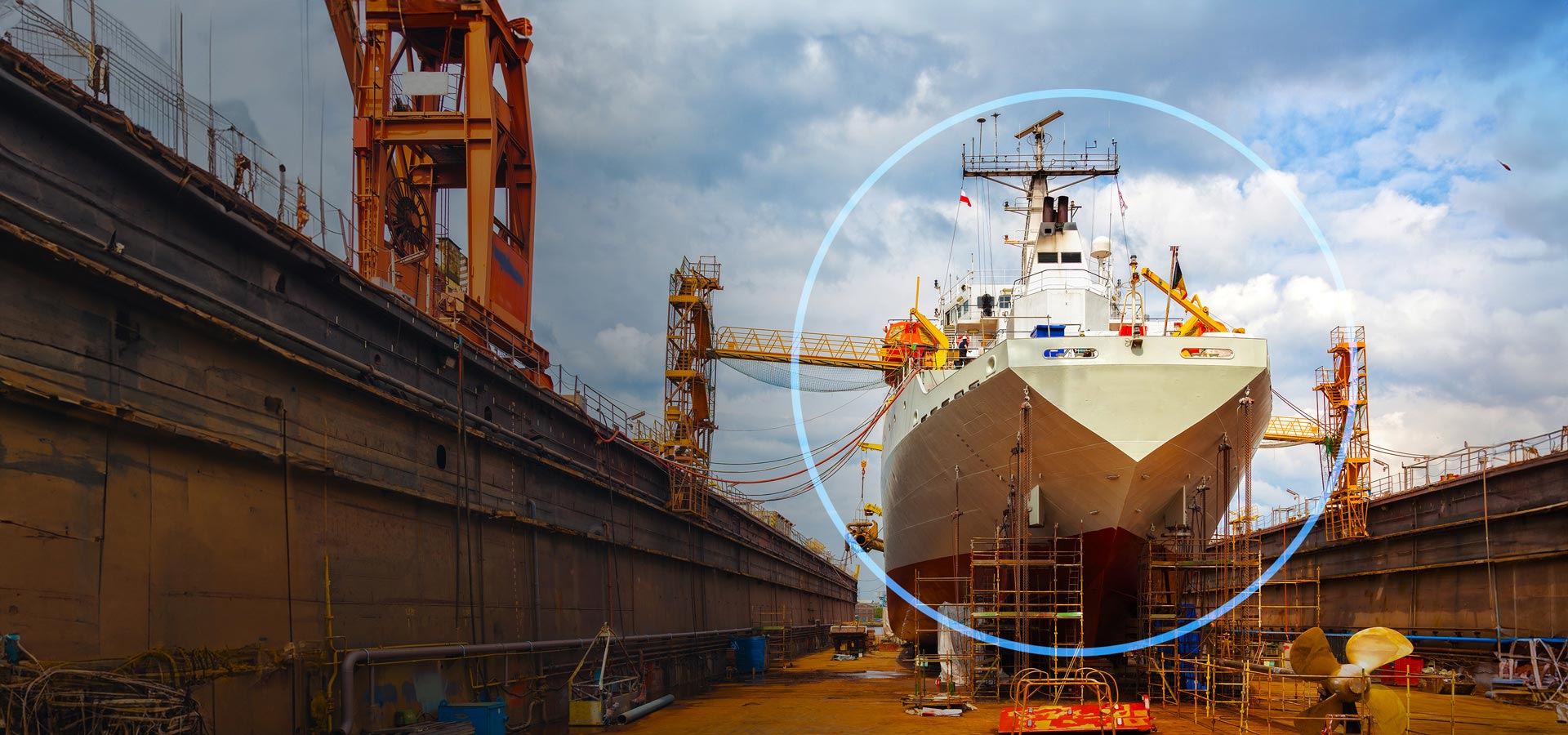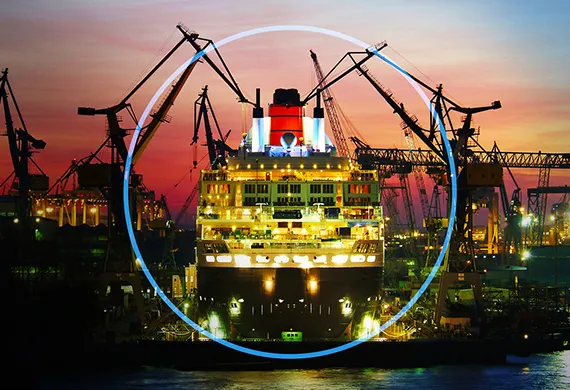Challenge: Optimizing Shipyard Infrastructure
Optimize shipyard infrastructure capacity to improve productivity and margin.
Worldwide shipyards are experiencing significant growth, driven by the increasing demand for naval vessels, commercial ships, container vessels and cruise liners. This growth necessitates global shipbuilders to improve build cycle time and strengthen competitiveness by reacting faster to customer needs.
The South Korean government announced in November 2023 that it will invest $534M to advance next-generation shipbuilding.
Source: The Maritime Executive
South Korea will establish an innovative manufacturing system with heightened productivity, specifically investing in building smart shipyards. Additionally, the country will increase the use of robotics to realize a digital transformation in the shipping industry.
"With the global shipbuilding industry's upturn adding a tailwind to Korea's shipbuilding industry, we expect to see great opportunities for making a rebound and new leap," says Youngjin Jang, the Vice Minister of South Korea's Ministry of Trade, Industry and Energy (MOTIE).
Additionally, in his article, retired Admiral James Foggo says, "While improving the physical infrastructure of shipyard facilities will be critical to success, it's equally essential that we take this opportunity to build the digital infrastructure required to accelerate our readiness advantage."
Digital Manufacturing To Overcome Challenges
Large order books, ship complexity and limited shipyard infrastructure are key challenges that shipyards must resolve daily. Powered by the 3DEXPERIENCE® platform, Dassault Systèmes' digital manufacturing solutions are designed to support the optimization of shipyard infrastructure.
Optimization can be done virtually in a smart shipyard by combining the virtual twins of the shipyard and the ship. The combined virtual twins allow shipbuilders to improve assembly operations by simulating material flow and enhancing the shipyard layout. In addition, an efficient shipyard layout will support material transportation efficiency and safety. This is achieved by performing a digital simulation of material movement and transportation to identify bottlenecks from one shipyard resource to another, such as the storage and workshop.
Build For Sea Industry Solution Experience supports supply chain planning and optimization. It provides the ability to optimize production planning and scheduling at the lower level of granularity (machines, materials and labor).
Powered by Dassault Systèmes' DELMIA Quintiq and DELMIA Ortems, the solution enables shipbuilders to maximize productivity, reduce costs and manage resources efficiently. Production planning helps shipbuilders improve their bid-to-win capability.
Shipyard
Layout and Simulation
One of the world s largest commercial shipyards leverages the Build For Sea Industry Solution Experience to reduce assembly time during the ship erection period in dry docks by more than 60%. They achieved this by preventing manual corrections in outfitting and by validating potential clashes virtually during the early stages of production in pre outfitting.
Ship Manufacturing Challenges
Today's shipyards face challenges on many fronts and must transform their process to stay competitive.
Challenge: On-Time Delivery of Ships
Delivering on time is not an option; it's a must for shipyards to stay profitable and remain competitive
Challenge: Workforce Management
The shipbuilding industry requires an experienced workforce to undertake highly complex projects like submarines or commercial vessels.
Smart Shipyards
Manage, control and optimize shipbuilding processes – from engineering to manufacturing – and meet customer demands for time, cost and quality.


